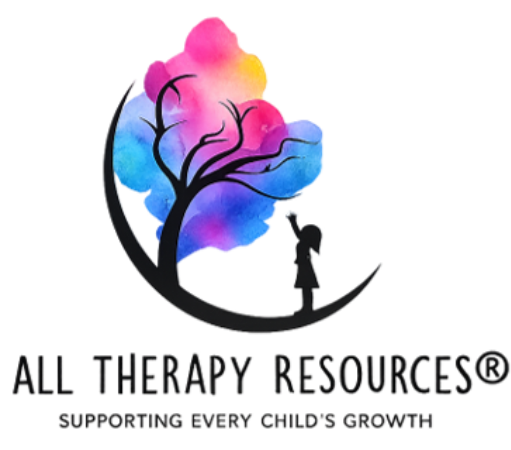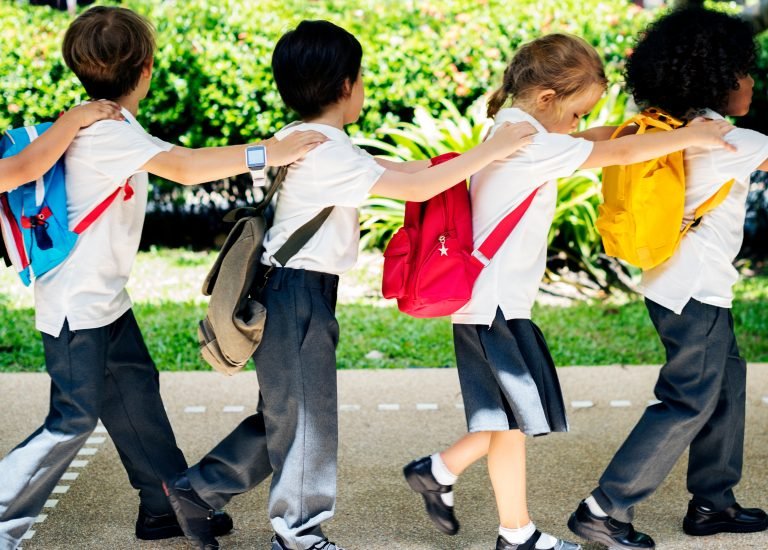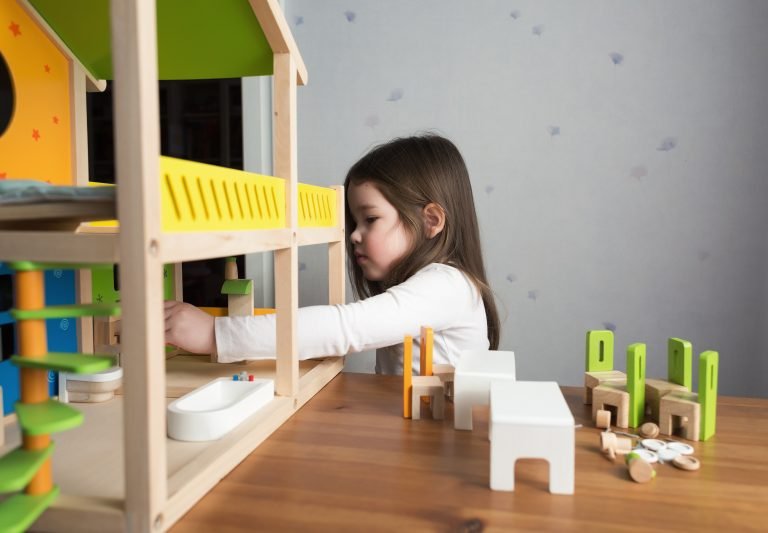
Imagine you’re sipping your morning coffee, scrolling through your phone, and then you head out for a brisk walk. Simple, right? But have you ever stopped to think about the complex dance of muscles and coordination behind these tasks? That’s where the fascinating world of fine and gross motor skills comes in, especially in the realm of occupational therapy.
This blog post will dive deep into what these skills are, why they matter, and how occupational therapy plays a pivotal role in developing them. Whether you’re a parent, educator, or someone curious about the mechanics of movement, you’re in for an insightful journey.
The Intricate Dance of Movement: Fine vs. Gross Motor Skills
At the heart of our daily activities lie two heroes: fine and gross motor skills. These skills are the building blocks of our physical interactions with the world. Gross motor skills are the big, bold movers – think jumping, running, or even standing. They’re the foundation of our movements, involving large muscle groups to perform tasks that require strength, coordination, and balance.
On the flip side, fine motor skills are the detail-oriented tasks we often take for granted. Ever buttoned a shirt, written a quick note, or texted a friend? That’s your fine motor skills in action, relying on smaller muscle groups for precision and dexterity.

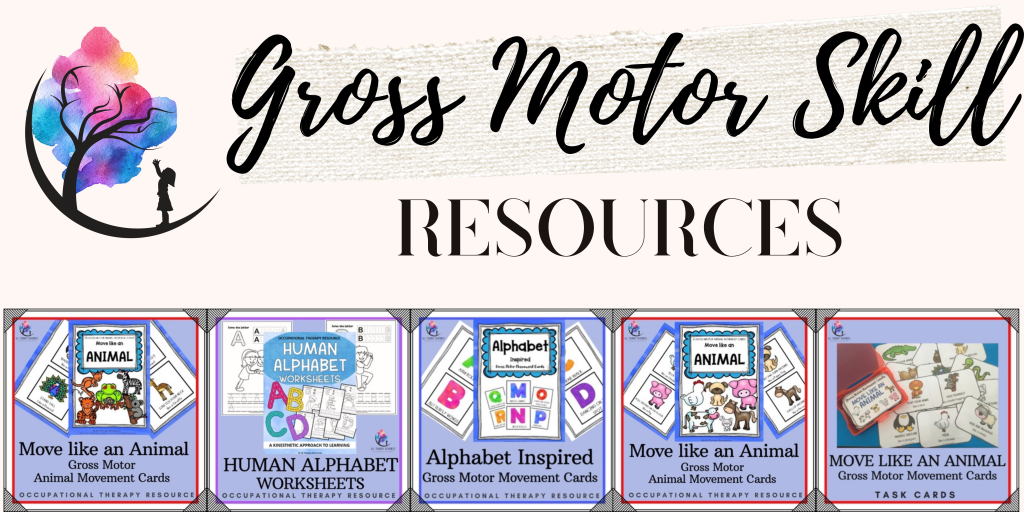
Get Moving with Animal Fun!
Looking to inject some fun and physical activity into your child’s routine or your classroom? Check out the “Move like an Animal: ZOO ANIMALS Movement Cards – Gross Motor Skill” resource. These engaging movement cards are perfect for getting kids up and moving while simultaneously developing their gross motor skills. Each card prompts children to imitate the movement of zoo animals, turning physical activity into an exciting game. Perfect for rainy days, physical education classes, brain or movement breaks or just shaking up the daily routine, these cards are a hit for children of all ages.
Ready to transform your space into a jungle of fun and learning? Jump over to Teachers Pay Teachers to grab your set of ZOO ANIMALS Movement Cards now!

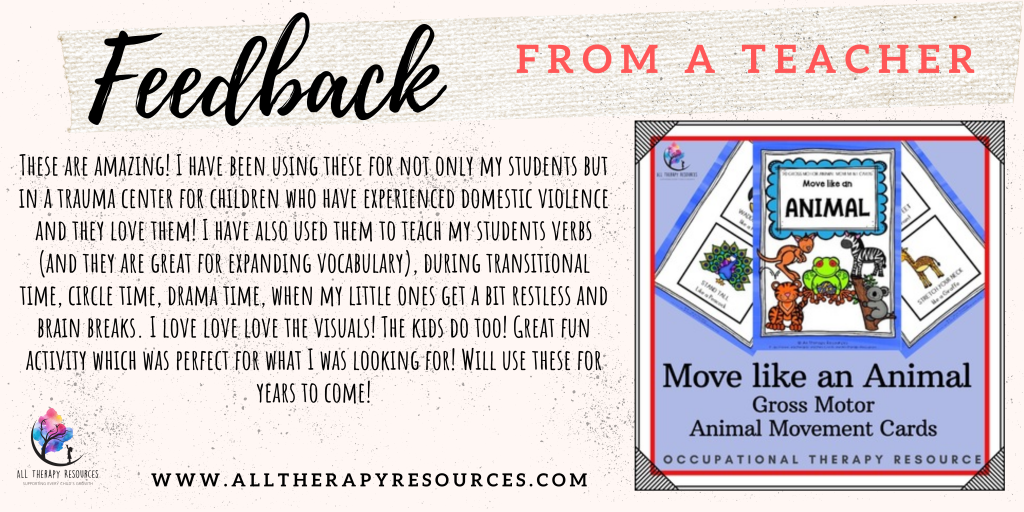
The Role of Occupational Therapy
Occupational therapy (OT) steps into this dance with a spotlight on both sets of skills. It’s like having a choreographer who fine-tunes each movement, ensuring that individuals of all ages can participate fully in life’s routine and special moments.
Whether it’s helping a child grasp a pencil properly, aiding an adult in regaining strength after an injury or assisting the elderly in maintaining independence, OTs are the unsung heroes behind many success stories.
Building Blocks of Development and Rehabilitation
➔ For Children and Adolescents
In the early stages of life, developing fine and gross motor skills is akin to laying the foundation of a house. It’s crucial for cognitive development, social interactions, and self-care tasks. Occupational therapists engage with children through play and age-appropriate activities to nurture these skills. From threading beads to climbing playground equipment, each activity is strategically selected to challenge and enhance their abilities.
➔ For Adults
Life’s curveballs, such as injuries or health conditions, can impact one’s motor skills. Here, OTs bring their expertise to the forefront, employing rehabilitation exercises and adaptive techniques to restore function and independence. It’s not just about recovery; it’s about empowerment, ensuring individuals can return to their daily tasks and hobbies with confidence.
➔ For the Elderly
As we age, maintaining motor skills becomes a testament to independence. Occupational therapy offers a beacon of hope, focusing on strength, flexibility, and coordination. Through tailored activities, seniors can improve their quality of life, reducing the risk of falls and enabling them to enjoy their golden years to the fullest.
Tips and Tricks for Enhancing Motor Skills
So, here are some tips and tricks for enhancing your motor skills:
- Stay Active: Regular physical activity can significantly improve both fine and gross motor skills. It’s about finding a balance that works for you, whether it’s yoga, swimming, or even gardening.
- Challenge Yourself: Incorporate new and challenging activities into your routine to keep your skills sharp. From learning a musical instrument to taking up a new sport, the possibilities are endless.
- Mindful Practice: Focus on the quality of movements rather than the quantity. Slow, deliberate practice can enhance precision and coordination.

Enhance Fine Motor Skills with Expert Tips!
If you’re on the lookout for strategies to develop fine motor skills, the “Fine Motor Skills Strategies & Activities – 2-page tip sheet handout for parents” is an invaluable resource. This concise, expertly crafted tip sheet offers a treasure trove of activities and insights designed to strengthen the fine motor skills critical for writing, buttoning, and other precise tasks. Ideal for parents and educators seeking to support children’s development with practical, everyday exercises, this handout demystifies the process and offers easy-to-implement strategies.
Don’t miss out on this essential tool for fostering fine motor skill development. Visit Teachers Pay Teachers to download your Fine Motor Skills Strategies & Activities tip sheet today!
Wrapping It Up
So there you have it, a closer look at the pivotal role of fine and gross motor skills in our lives and how occupational therapy can enhance these vital functions. Remember, whether it’s the grand gestures or the subtle nuances of movement, each plays a significant role in our daily lives and overall well-being.
If you’re on the hunt for some awesome activities and resources to boost fine and gross motor skills, you’ve gotta check out our collection over at All Therapy Resources: Fine Motor Skills on Teachers Pay Teachers.
It’s a goldmine for parents, teachers, and therapists alike, filled to the brim with everything you need to support development and encourage independence. So, why not take a peek? Your next great find for making learning fun and effective is just a click away. Trust me, you don’t want to miss this!

Frequently Asked Questions (FAQs)
1. What’s the difference between fine and gross motor skills?
Fine motor skills involve the use of smaller muscle groups for detailed tasks like writing or buttoning a shirt, whereas gross motor skills use larger muscle groups for bigger movements, such as jumping or running. Both are crucial for daily life and development.
2. How can occupational therapy help with motor skill development?
Occupational therapists use a variety of techniques and activities to help individuals of all ages develop or regain their motor skills. This can range from playful activities for children to strengthen their grip to rehabilitation exercises for adults recovering from injuries, aiming to improve independence and quality of life.
3. At what age should I start focusing on my child’s motor skills development?
It’s never too early to start! From infancy, children begin to develop both fine and gross motor skills. Engaging in age-appropriate activities can support their growth from the very beginning. If you have concerns about your child’s development, consulting an occupational therapist can provide tailored guidance.
4. Can adults improve their motor skills, or is it mainly a childhood development area?
Absolutely, adults can improve their motor skills too! Whether it’s recovering from an injury, learning a new skill, or combating the natural decline of aging, occupational therapy and targeted exercises can enhance both fine and gross motor skills at any age.
5. Where can I find resources or activities to help with motor skills development?
A great place to start is the All Therapy Resources: Fine Motor Skills collection on Teachers Pay Teachers. It’s packed with resources designed for various ages and needs, from children developing their initial skills to adults looking to refine theirs. Additionally, engaging in everyday activities like playing with clay (for fine motor) or participating in sports (for gross motor) can also be beneficial.


